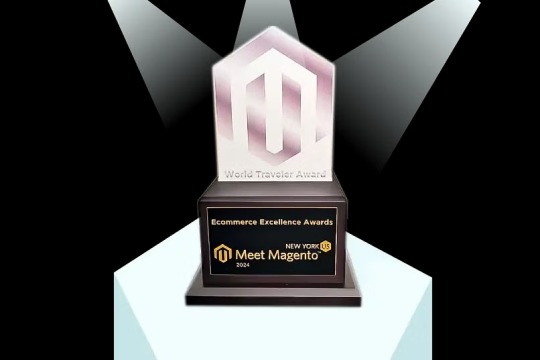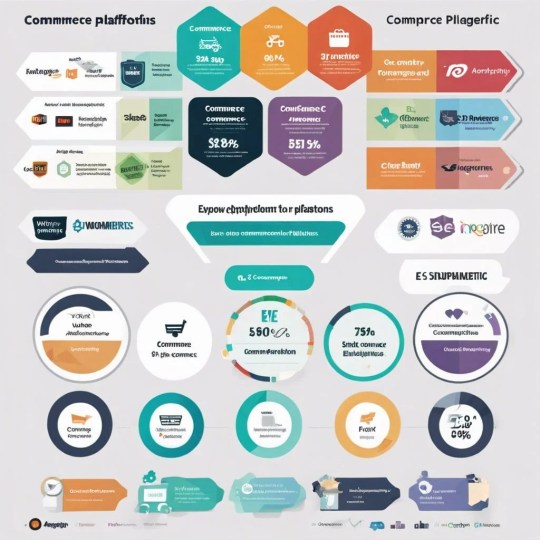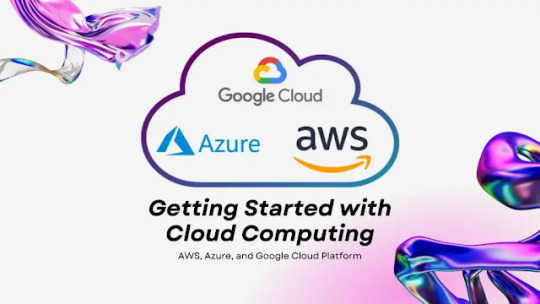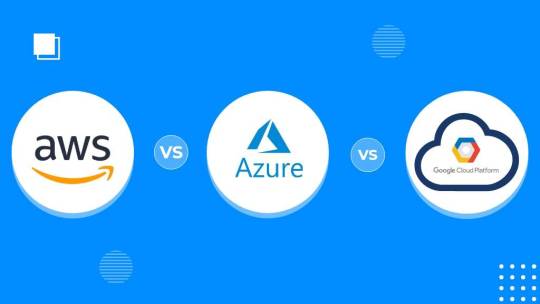#magento platform
Explore tagged Tumblr posts
Text

For building an e-commerce website Magento is a popular and useful platform. It has rich advanced features that ease the data migration process and stimulate the growth of businesses. So hiring the right Magento developer can be a challenging task as it will determine the success of your online business.
Drop a mail at [email protected]
Call us at 033-4062-0542
#hire magento developers#magento developers#magento platform#magento#developers#expert magento developers#hire expert magento developer#expert magento developer#hire dedicated magento developers#dedicated magento developers#it developers
0 notes
Text
Top Benefits of Magento over other eCommerce Platforms
Magento is one of the most sought-after e-commerce solutions, with many features that make it stand out from other solutions. Whether a small store or a large enterprise, Magento offers unique benefits to businesses of all sizes.
Reasons why Magento is different?
1. Highly Customizable
Magento is open-source, fully allowing you to have complete control over the functionality, design, and features of your website. This flexibility can enable you to create a truly unique online store that best describes your brand and suits your individual business needs. Magento enables adding any custom extension to tweak the design.
2. Scalability
Unlike many other eCommerce solutions, Magento easily sustains a growing business. It hosts thousands of products and volumes of traffic at high rates, all while still maintaining performance. This makes it an excellent choice for businesses with plans to scale up in the future.
3. Rich Features
Magento is designed with various solid features such as multi-store, advanced inventory management, SEO optimization, and inbuilt marketing options. The above-mentioned features not only smoothen the functions of operation but also give your online business a real visibility boost for easier reach toward customers.
4. SEO-Friendly
Magento is designed to help businesses rank higher on search engines. It offers features like customizable URLs, metadata, sitemaps, and mobile-friendly designs-all of which are important for search engine optimization. That means your store has a better chance of reaching your target audience organically.

5. Integration Options
Magento supports integration with third-party tools and services, including payment gateways, CRMs, ERPs, and shipping providers. This ensures seamless operation and helps improve the overall customer experience.
6. Strong Community Support
Due to the large active community of Magento developers, users, and experts all over the world, Magento will provide tons of resources from troubleshooting to implementing innovation. The community is ever ready with technical advice, and best-practice guidance whenever needed.
7. Mobile-Optimized
In today's mobile-first universe, Magento takes the best care that your store performs seamlessly on everything. Its wide scope of responsive design contributes much to a better buying experience for any end-user on devices with smaller features than desktops, or basically, all types of phones and tablets-and improve conversions significantly.
8. Security
Magento is designed to offer the best in terms of security, including data encryption, two-factor authentication, and regular updates. This ensures your online store is protected against cyber threats.
With Magento, your business will be able to grow and thrive in today's competitive eCommerce landscape because of its flexibility, scalability, and rich features. SEO-friendly, with strong community support, it's a platform that will help you reach long-term success.
2 notes
·
View notes
Text
Boost Your Magento Store's Performance with Hyvä Theme Development
Your Magento store will be lighter, quicker, and easier to use with Hyvä theme development. The skilled developers at Laconica are experts in building successful stores that increase conversion. Today, let's make your shop unique!

#Hyvä Theme Development#hyva magento#saas platform development#saas development#saas development services#shopify developer
0 notes
Text

E-commerce Excellence Awards - Meet Magento NYC 2024 We are excited to announce that Codilar has received the prestigious World Traveler Award at the Ecommerce Excellence Awards during Meet Magento New York 2024. This recognition celebrates our innovative eCommerce solution for Tiger-One Distribution (TGR). The award highlights our unmatched expertise in developing high-performance platforms that have played a key role in TGR’s disruption of the cannabis industry.
0 notes
Text

What Is Magento E-commerce and Why Should You Use It
https://www.exinent.com/what-magento-ecommerce/
0 notes
Text
Top 5 E-Commerce Platforms Compared: Shopify vs. WooCommerce vs. Magento
Reign Over The E-Commerce Realm: The Ultimate Showdown of Top Platforms In the ever-evolving landscape of online retail, the choice of the right e-commerce platform can make or break your business. Embark on a captivating journey as we unveil the ultimate showdown between the titans of the industry: Shopify, WooCommerce, and Magento. Uncover the remarkable features, unparalleled capabilities,…

View On WordPress
0 notes
Text
Magento Vs BigCommerce: The Right Ecommerce Platform for You?
Online shopping has taken the world by storm, and by 2021 the global eCommerce market is expected to reach a value of US $4.5 trillion. Australia is among the top 10 global markets for eCommerce, with an approximate valuation of $29.65 billion by 2021 and a fast growth projection. More people are turning to online shopping, making this the ideal time to have an ecommerce website. With modern eCommerce platforms, launching an eCommerce business is simple, manageable and affordable. However, with the numerous eCommerce platforms available, choosing the right one can be difficult. Magento and BigCommerce are two of the leading eCommerce platforms available.
In this blog, we will discuss in details that Magento Vs BigCommerce: The Right Ecommerce Platform for You?
0 notes
Text
#Magento EDI Integration#EDI solutions for small business#edi solutions#edi system#business software#e-commerce platform#best edi software
0 notes
Text
Getting Started With Cloud Computing : AWS, Azure, and Google Cloud Platform

Are you ready to soar high in the ever-evolving realm of cloud computing? 🌥️✨ Look no further, as we embark on an exciting journey into three of the most prominent players in this field: AWS, Azure, and Google Cloud Platform. Whether you’re a tech enthusiast seeking to expand your knowledge or a business owner considering leveraging the power of these platforms,
this blog post is your ultimate guide to successfully navigate through the clouds and kickstart your cloud computing adventure! Let’s buckle up and explore how these giants can propel us towards innovation and efficiency like never before. 💻🚀
Introduction To Cloud Computing
If you’re new to the world of cloud computing, you might be wondering what all the hype is about. Cloud computing is a way to use technology to make it easier for businesses to work together and share resources over the internet. It’s a way of working that’s becoming more and more popular, as it offers a number of advantages over traditional methods of working.
In this section, we’ll introduce you to the basics of cloud computing, so you can decide if it’s right for your business. We’ll start by explaining what cloud computing is, before moving on to look at the different types of cloud services that are available. We’ll also explore some of the benefits of using cloud services, so you can see why they’re become such a popular choice for businesses.
Overview Of The Different Cloud Platforms (AWS, Azure, And Google Cloud Platform)
There are three major cloud providers in the market today: Amazon Web Services (AWS), Microsoft Azure, and Google Cloud Platform (GCP). Each provider has its own strengths and weaknesses, so it’s important to understand the different offerings before deciding which one is right for your needs.
AWS is the most popular cloud platform on the market, with a lead of nearly 50% over its closest competitor, Azure. AWS offers a comprehensive set of services and features, making it a good choice for businesses that want a one-stop shop for all their cloud needs. However, AWS can be more expensive than other options, so it’s important to compare pricing before committing to a platform.
Azure is a close second to AWS in terms of market share, and it offers many of the same features as AWS. Azure is a good choice for businesses that want access to Microsoft’s extensive ecosystem of products and services. However, Azure can be more difficult to use than other options, so it’s important to consider your team’s expertise before choosing this platform.
GCP is the third major cloud platform on the market, but it lags behind AWS and Azure in terms of market share. GCP is a good choice for businesses that want access to Google’s extensive ecosystem of products and services. However, GCP can be more expensive than other options, so it’s important to compare pricing before committing to a platform.
The Benefits Of Using Each Platform
Cloud computing platforms offer many benefits, including the ability to scale elastically, pay for only what you use, and enjoy increased collaboration and productivity. Each platform has its own unique benefits that can help your business achieve its goals.
AWS provides a comprehensive set of cloud computing services that are easy to use and scalable. AWS offers a pay-as-you-go pricing model that allows you to only pay for the resources you use. AWS also offers a wide range of services, including storage, computing, networking, and database.
Azure is a cloud computing platform that offers both Platform as a Service (PaaS) and Infrastructure as a Service (IaaS). Azure offers a variety of services, including storage, databases, networking, and compute. Azure also offers an extensive worldwide network with high availability and security.
Google Cloud Platform (GCP) is a cloud computing platform that offers both IaaS and PaaS. GCP offers a variety of services, including storage, databases, networking, and compute. GCP also has an extensive global network with high availability.
Comparing AWS, Azure, And GCP
There are three major cloud service providers (CSPs) today: Amazon Web Services (AWS), Microsoft Azure, and Google Cloud Platform (GCP). Each has its own strengths and weaknesses, so it’s important to understand the differences before choosing a provider.
AWS is the most comprehensive and widely adopted cloud platform, offering more than 175 services including compute, storage, database, networking, analytics, artificial intelligence (AI), and Internet of Things (IoT). AWS is also the most mature of the three CSPs, with the largest number of customers and the broadest range of services.
Azure is a close second to AWS in terms of market share and capabilities. Azure offers 170+ services including compute, storage, database, networking, analytics, AI, and IoT. One key difference between Azure and AWS is that Azure includes first-party managed services from Microsoft—such as Office 365—whereas AWS does not offer any first-party managed services.
GCP is the smallest of the three major CSPs but is growing rapidly. GCP offers more than 160 products including compute, storage, database, networking , analytics, AI, and IoT. GCP’s competitive advantages include tighter integration with big data (it powers Google Search) and advanced machine learning (ML) tools.
When comparing the three CSPs, consider your specific needs for compute, storage, networking, AI/ML, and other services. All three offer comparable pricing based on pay-as-you-go models, though AWS has more options for upfront payment discounts. Ultimately the best choice depends on which platform best meets your specific requirements.

Choosing The Best Platform For Your Needs
When it comes to cloud computing, there are three major platforms to choose from: Amazon Web Services (AWS), Microsoft Azure, and Google Cloud Platform (GCP). Each platform has its own strengths and weaknesses, so it’s important to choose the one that best fits your needs.
AWS is the most popular cloud platform, and for good reason. It’s feature-rich and scalable, making it a good choice for businesses of all sizes. However, it can be expensive, and some find its interface confusing.
Azure is a close second to AWS in terms of popularity. It’s a bit cheaper than AWS and offers many of the same features. However, Azure can be difficult to learn and use, which may not make it the best choice for small businesses or those new to cloud computing.
GCP is the third major player in the cloud computing space. It’s not as widely used as AWS or Azure, but it has its fans. GCP is known for being easy to use and having excellent customer support. However, it doesn’t offer as many features as the other two platforms.
So, which platform should you choose? It depends on your needs. If you’re looking for a powerful and feature-rich platform that can handle anything you throw at it, AWS is a good choice. If you want a cheaper option that’s still pretty good, go with Azure. And if you’re new to cloud computing and just want something that ‘s easy to use, GCP is your best bet. No matter what platform you choose, make sure you take the time to evaluate your needs and research each option before making a decision. That way, you’ll be sure that you select the best platform for your business.
Setting Up Your Account And Getting Started
Assuming you’ve never used cloud computing before, this guide will walk you through the basics of setting up an account and getting started with the three major providers: Amazon Web Services (AWS), Microsoft Azure, and Google Cloud Platform (GCP).
Creating an account with a cloud provider is similar to signing up for any other online service. You’ll need to provide some basic information about yourself and your organization, including a credit card or bank account so that the provider can bill you for services used. Some providers may also require you to verify your identity by providing a government-issued ID.
Once you’ve created an account, you can start using cloud services immediately. Most providers offer a free trial period with some limited services so that you can explore what they have to offer without incurring any charges. After the free trial period ends, you’ll be billed according to the plan you choose. The three providers all offer different pricing models, so be sure to review each one carefully before selecting a plan.
AWS, Azure, and GCP all offer a wide range of services, so it can be helpful to consult their documentation or talk to someone who’s familiar with them before getting started. That way, you can better understand what each service does and how it might be useful for your needs. Once you have a general understanding of the capabilities of each platform, you can begin experimenting with the various services to see how they fit into your workflow.
No matter which provider you choose, cloud computing can provide a great way to increase the scalability and reliability of your applications. With the right plan and an understanding of how the different services work together, you can get up and running in no time.
Common Mistakes When Moving To A Cloud Infrastructure
There are many potential pitfalls when moving to a cloud infrastructure. Here are some of the most common mistakes:
Failing to properly assess workloads: One of the most common mistakes is failing to properly assess which workloads are best suited for the cloud. Not all workloads are created equal, and some are more resource intensive than others. Make sure you have a good understanding of your workloads before making the switch to the cloud.
Not taking advantage of autoscaling: Autoscaling is one of the key benefits of a cloud infrastructure. Don’t make the mistake of not taking advantage of this feature – it can help you save a lot of money in the long run.
Underestimating data security needs: Another common mistake is underestimating the importance of data security. When you move to the cloud, you lose some control over your data security. Make sure you have a strong security plan in place before making the switch.
Failing to properly plan for costs: One of the biggest mistakes companies make when moving to a cloud infrastructure is failing to properly plan for costs. Cloud computing can be very cost-effective, but only if you know how to use it effectively. Make sure you have a clear understanding of your company’s needs and budget before making the switch. Not researching the right vendor: Do your research when choosing a cloud vendor. You want to find one that has experience and offers quality services at a reasonable price. Taking shortcuts here can lead to costly mistakes in the long run.
Security Considerations For Cloud Computing
Security is a top concern when moving to the cloud. By its very nature, cloud computing means entrusting your data to a third party. However, there are steps you can take to ensure your data is secure in the cloud.
When choosing a cloud provider, be sure to do your research and select a reputable company with a strong security track record. Once you’ve selected a provider, make sure you’re taking advantage of all the security features they offer. For example, most providers offer data encryption and access control measures that you can use to further secure your data.
Always remember that security is a shared responsibility between you and your cloud provider. Be sure to keep your own systems up-to-date and secure, and never hesitate to contact your provider if you have any questions or concerns about their security measures.
Conclusion
Cloud computing is a rapidly growing technology and can provide an organization with incredible advantages. The three biggest providers- AWS, Azure, and Google Cloud Platform- all have excellent features that make them attractive choices for cloud deployment.
Knowing the key differences between these providers and how to get started is essential in order to determine which one best meets your needs. With a bit of research and planning, you should be able to quickly find the right cloud solution for your specific business scenarios.
#Getting Started With Cloud Computing : AWS#Azure#and Google Cloud Platform#web development#best web development company in united states#web design#asp.net web and application development#logo design company#web designing company#digital marketing company in usa#magento development#web development company#website landing page design
1 note
·
View note
Text
Exploring E-commerce Solutions for Small Businesses and Start-ups
In today’s digital age, establishing an online presence is crucial for small businesses and start-ups to reach a wider audience and thrive in the competitive market. E-commerce solutions offer a convenient way for entrepreneurs to showcase their products and services, manage transactions, and foster customer relationships. This article aims to shed light on different e-commerce solutions suitable…

View On WordPress
#amazon#bigCommerce#e-commerce#eBay#Etsy#Exploring E-commerce Solutions for Small Businesses and Start-ups#magento#platforms#PrestaShop#Selecting the right e-commerce solution#Shopify#small business#solutions#spinnekop#start-ups#wix#WooCommerce#wordpress#www.spinnekop.co.za
0 notes
Text
Optimize Your E-Commerce Capability with Magento and HYVA
Are you trying to improve the performance of your shop? Magento and HYVA provide unparalleled functionality, speed, and design. Laconica can provide a smooth and effective development process to realize your vision. Contact us right now to begin your Magento and HYVA journey!

#saas platform development#shopify developer#saas development services#saas development#hyva magento#hyva theme development
0 notes
Text

Discover the Top 5 Squarespace alternatives that can take your website to the next level.
https://blog.wcart.io/squarespace-alternatives/
#wcart#ecommerce#onlinestore#ecommerce platform#business#onlinebusiness#squarespacealternatives#woocommerce#shopify#magento#webnexs
0 notes
Text
What does a Magento developer

You will understand what a Magento developer is from the name itself if you are familiar with Magento, a content management system used to build e-commerce websites for businesses. Since e-commerce has grown significantly, the demand for such programmers is high. Programmers are responsible for developing, customising, and maintaining the websites built using the platform.
Magento developers install and configure your online store from scratch, create custom themes and functionality, upgrade the store, and optimise its performance. Many larger companies have a team of such programmers, who can be front-end or back-end developers. This article will discuss them and some of the must-have skills required.
Reason for the high demand
As mentioned earlier, the demand for programmers is rising and is not going anywhere soon. It is because Magento is an object-oriented PHP framework with cutting-edge features capable of building strong and exceptional e-commerce websites to attract customers. So there is no other way around it other than its growth in the future.
Hence, their demand will show substantial growth in the following years without fail. When taking the numbers, the number of programmers had already reached 300,000 worldwide in 2021. The requirements and the vacancies for them are expected to witness a significant hike as there is a significant inclination towards eCommerce development in the industry.
By 2030, more than 40 million software programmers might be working worldwide if the current trend keeps going well. Undoubtedly, the demand for programmers will continue to grow exponentially due to the growing importance of programming languages and open-source features in eCommerce.
Click here to learn more
#magento#magento developer#magento developers#onlinestore#ecommerce#ecommerce platform#article#developer#development
1 note
·
View note
Link
Choosing the Right E-commerce Platform: Shopify, Magento, or Salesforce? Selecting the ideal e-commerce platform is a critical decision for businesses looking to establish or enhance their online presence. With numerous options available, three platforms often stand out: Shopify, Magento, and Salesforce. In this article, we will explore the features, strengths, and considerations associated with each platform to help you make an informed decision on which e-commerce platform is the right fit for your business.
#ecommerce#magento#shopify#salesforce commerce cloud#salesforce#sfcc#ecommerce development#ecommerce developers#web developers#web developing company#web development#web design#ecommerce platform
0 notes
Text
0 notes
Text
To reap the benefits of an efficient online store, retailers across the globe are using Magento development services.
0 notes